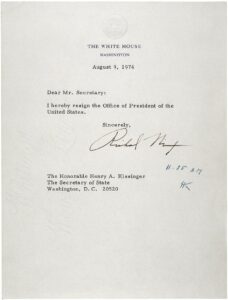
In 1968, Republican candidate Richard Nixon was elected as the 37th President of the United States. He claimed to have a “sacred commitment” to peace, and planned to focus his efforts on international cooperation. However, on June 17, 1972, Nixon’s political policies would no longer be the focal point of his time as president. After a break-in at the Democratic National Headquarters, a scandal was unearthed.
At first, no one paid much notice to this, and Nixon was reelected, defeating opponent George McGovern with one of the widest vote margins in White House history. Everything seemed to be going well for him.
Then, the Washington Post’s reporters Carl Bernstein and Bob Woodward ran a story saying the government had known about the break-in. With the help of a source known only as “Deep Throat,” Bernstein and Woodward unearthed the truth, and a frenzy of media attention ensued.
An official investigation was launched in 1973. The FBI discovered that the break-in was part of a scheme for Nixon’s reelection. The burglars were convicted of conspiracy, wiretapping, and burglary. Many people in Nixon’s administration resigned, trying to avoid the storm that was coming.
A former secretary, Alexander Butterfield, stated that Nixon recorded everything that occurred in the Oval Office. Although Nixon tried to hide the tapes, the Watergate Committee gained access to them anyway. One key tape showed that Nixon had pitted the CIA against the FBI, trying to obstruct the FBI investigation of the burglary. At this point, impeachment became a real possibility for Nixon. Instead of being impeached, Nixon decided to resign. On August 9, he left the White House with these words: “Always remember, others may hate you, but those who hate you don’t win unless you hate them, and then you destroy yourself.”
Back to Crime Library
|
|
|
